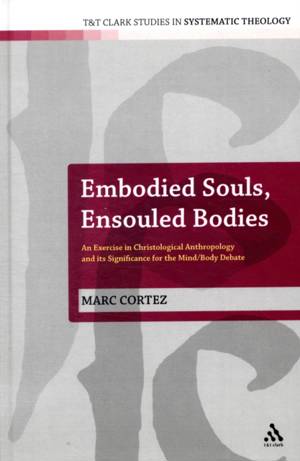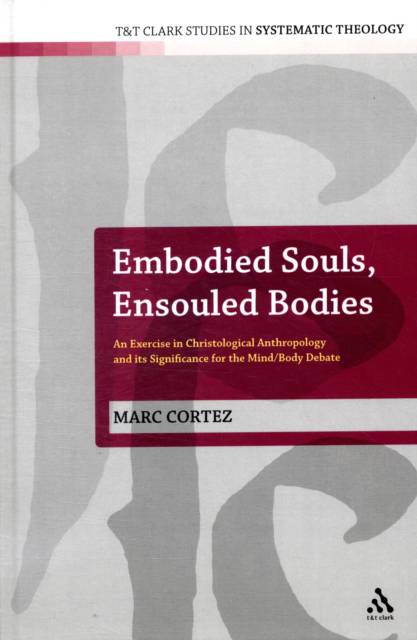
- Afhalen na 1 uur in een winkel met voorraad
- Gratis thuislevering in België vanaf € 30
- Ruim aanbod met 7 miljoen producten
- Afhalen na 1 uur in een winkel met voorraad
- Gratis thuislevering in België vanaf € 30
- Ruim aanbod met 7 miljoen producten
Zoeken
Embodied Souls, Ensouled Bodies
An Exercise in Christological Anthropology and Its Significance for the Mind/Body Debate
Marc Cortez
€ 373,45
+ 746 punten
Uitvoering
Omschrijving
The book explores the relationship between Christology and theological anthropology through the lens provided by the theology of Karl Barth and the mind/body discussion in contemporary philosophy of mind. It thus comprises two major sections. The first develops an understanding of Karl Barth's theological anthropology focusing on three major facets: (1) the centrality of Jesus Christ for any real understanding of human persons; (2) the resources that such a christologically determined view of human nature has for engaging in interdisciplinary discourse; and (3) the ontological implications of this approach for understanding the mind/body relationship. The second part draws on this theological foundation to consider the implications that Christological anthropology has for analyzing and assessing several prominent ways of explaining the mind/body relationship. Specifically, it interacts with two broad categories of theories: nonreductive' forms of physicalism and holistic' forms of dualism. After providing a basic summary of each, the book applies the insights gained from Barth's anthropology to ascertain the extent to which the two approaches may be considered christologically adequate.
Specificaties
Betrokkenen
- Auteur(s):
- Uitgeverij:
Inhoud
- Aantal bladzijden:
- 250
- Taal:
- Engels
- Reeks:
- Reeksnummer:
- nr. 1
Eigenschappen
- Productcode (EAN):
- 9780567033680
- Verschijningsdatum:
- 18/11/2008
- Uitvoering:
- Hardcover
- Formaat:
- Ongenaaid / garenloos gebonden
- Afmetingen:
- 163 mm x 234 mm
- Gewicht:
- 453 g

Alleen bij Standaard Boekhandel
+ 746 punten op je klantenkaart van Standaard Boekhandel
Beoordelingen
We publiceren alleen reviews die voldoen aan de voorwaarden voor reviews. Bekijk onze voorwaarden voor reviews.








